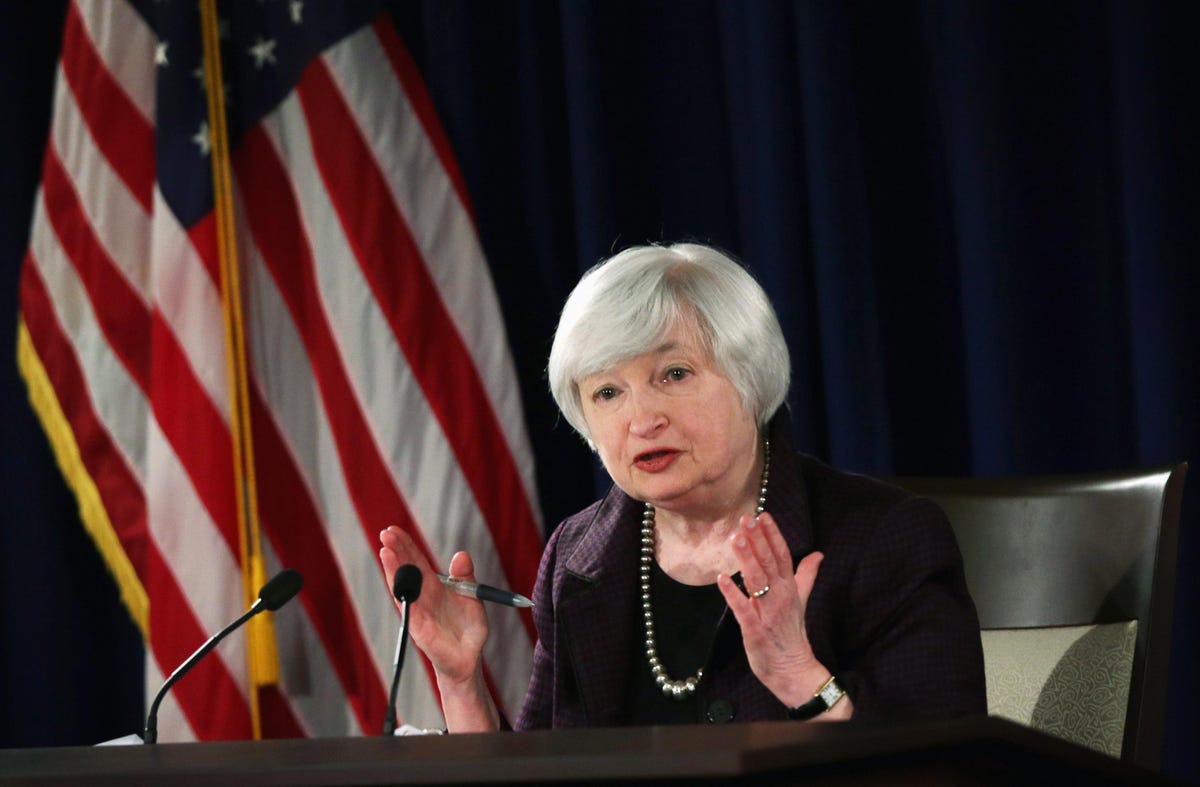‘National Security’—Yellen Let Slip Her Plan to Regulate Crypto As The Price Of Bitcoin, Ethereum, BNB, XRP, Solana, Cardano, And Dogecoin Sink
Share to FacebookShare to TwitterShare to LinkedinBitcoin and cryptocurrency prices are in the red this week.
The bitcoin price fell below $40,000, and is now 15% down from its March highs. Ethereum’s price dropped 7.8%, BNB 3.6%, terra 20%, solana 13.8%, cardano 12.9%, and XRP 0.7%, and dogecoin 2.12%.
Meanwhile, last week Treasury Secretary Janet Yellen gave her first speech about cryptocurrencies and their regulation. While her address had an unexpected pro-crypto undertone, Yellen called for a tougher regulatory stance.
“Consumers should be protected from fraud regardless of whether assets are stored on a balance sheet or distributed ledger…. Money-laundering and other illicit activity should be deemed illegal, and it doesn’t matter whether you’re using checks, wires or cryptocurrency,” she said.
Yellen also made a few subtle remarks that may hint at how regulators will guide crypto policy in the future.
[Ed note: Investing in crypto is highly speculative and the market is largely unregulated. Anyone considering it should be prepared to lose their entire investment.]
Treasury Secretary Janet Yellen
Getty Images MORE FOR YOUA Government Shutdown Is Just 3 Days Away—Here’s What Would Happen If Lawmakers Don’t Strike A DealBuy And Sell Ratings On Apple, Tesla, Amazon And The 17 Other Largest StocksOil Prices Surge To Three-Year Highs After Hurricanes And Unexpected Demand—How Much Higher Can They Go? The Digital Dollar
For much of the past century, the dollar enjoyed the benefits of the world’s reserve currency. And Yellen stressed that retaining this privilege should be regulators’ priority in their approach to digital assets.
“The development of our currency to its current form has been a dynamic process that took place over centuries. Today, monetary sovereignty and uniform currency have brought clear benefits for economic growth and stability. Our approach to digital assets must be guided by the appreciation of those benefits,” she said.
As such, Yellen believes, that while the government should push for financial innovation that ensures “competitiveness and growth,” it should also pursue its “national security interests.”
She suggested that a central bank-issued digital currency (CBDC) could fulfil the need for a digital currency while retaining America’s reserve currency privilege.
“… a CBDC could be the next evolution in our currency. A recent report by the Federal Reserve opened a public dialogue about CBDCs and the potential benefits and risks that could be associated with issuing one in the U.S.”
Later she made an explicit remark that clarified her stance on the decentralized vs. centralized currency debate: “Sovereign money is the core of a well-functioning financial system,” she said.
The Rise of CBDCs
Governments across the world are showing more and more interest in CBDCs.
As I wrote recently, “87 countries (which make up over 90% of the world’s GDP) are considering launching their own digital currencies, according to Atlantic Council. 14 are on a test run, including China, and nine have already launched, with Nigeria introducing last.”
The U.S. is jumping on the bandwagon, too.
Last month, Biden issued an executive order calling on government agencies to research and design a digital dollar prototype as a way to reinforce America’s financial leadership and protect “national security.”
“My Administration places the highest urgency on research and development efforts into the potential design and deployment options of a United States CBDC….These efforts should include assessments of possible benefits and risks for consumers, investors, and businesses; financial stability and systemic risk; payment systems; national security; the ability to exercise human rights; financial inclusion and equity; and the actions required to launch a United States CBDC if doing so is deemed to be in the national interest,” the executive order said.
How would the rise of CBDCs affect cryptos?
During a congressional hearing last July, Fed Chair Jerome Powell, in effect, said a digital dollar would annihilate private cryptocurrencies, especially stablecoins. “You wouldn’t need stablecoins; you wouldn’t need cryptocurrencies, if you had a digital U.S. currency,” he said.
Others believe privacy concerns over a centralized, state-controlled digital currency would have the opposite effect. And that the adoption of CBDCs would counterintuitively motivate more people to park their money in decentralized stores of value.
Stay ahead of crypto trends with Meanwhile in Markets…
Every day, I put out a story that explains what’s driving the crypto markets. Subscribe here to get my analysis and crypto picks in your inbox.












 Bitcoin
Bitcoin  Ethereum
Ethereum  Tether
Tether  XRP
XRP  USDC
USDC  Solana
Solana  TRON
TRON  JUSD
JUSD  Figure Heloc
Figure Heloc